Pupils and dementia patients bond over childhood memories
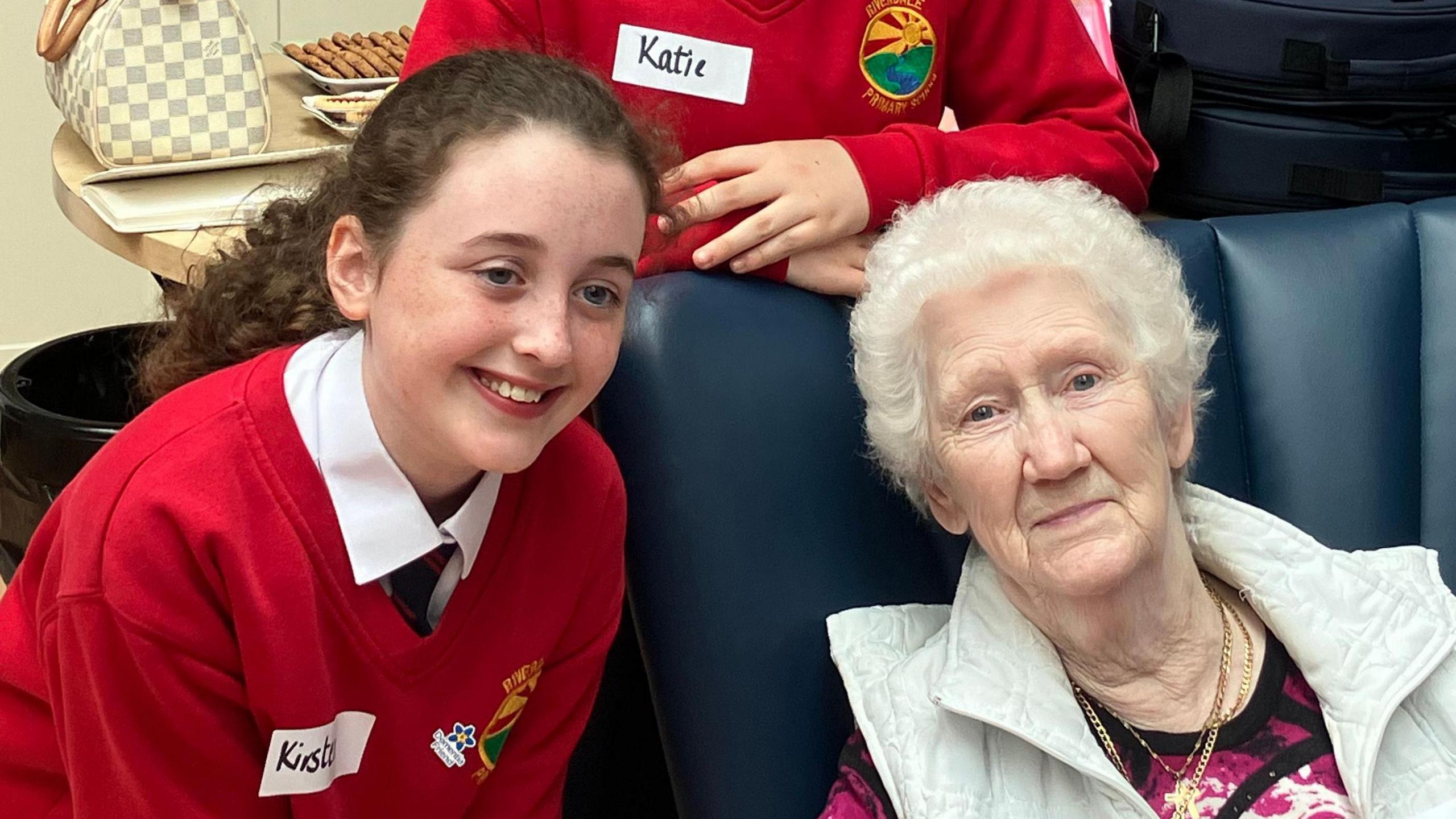
Sadie says she looks forward to the children coming
- Published
"Dementia is like a bookcase - your newest memories would be on the top and then sometimes memories fall out."
Katie from Riverdale Primary School near Lisburn has been getting lessons from some very special teachers.
Along with other pupils from the school, the 11-year-old has been learning about dementia from older people living with the disease.
The Riverdale pupils have been getting to know residents from St Paul's Court - a supported living home run by Praxis Care for people with mild dementia.
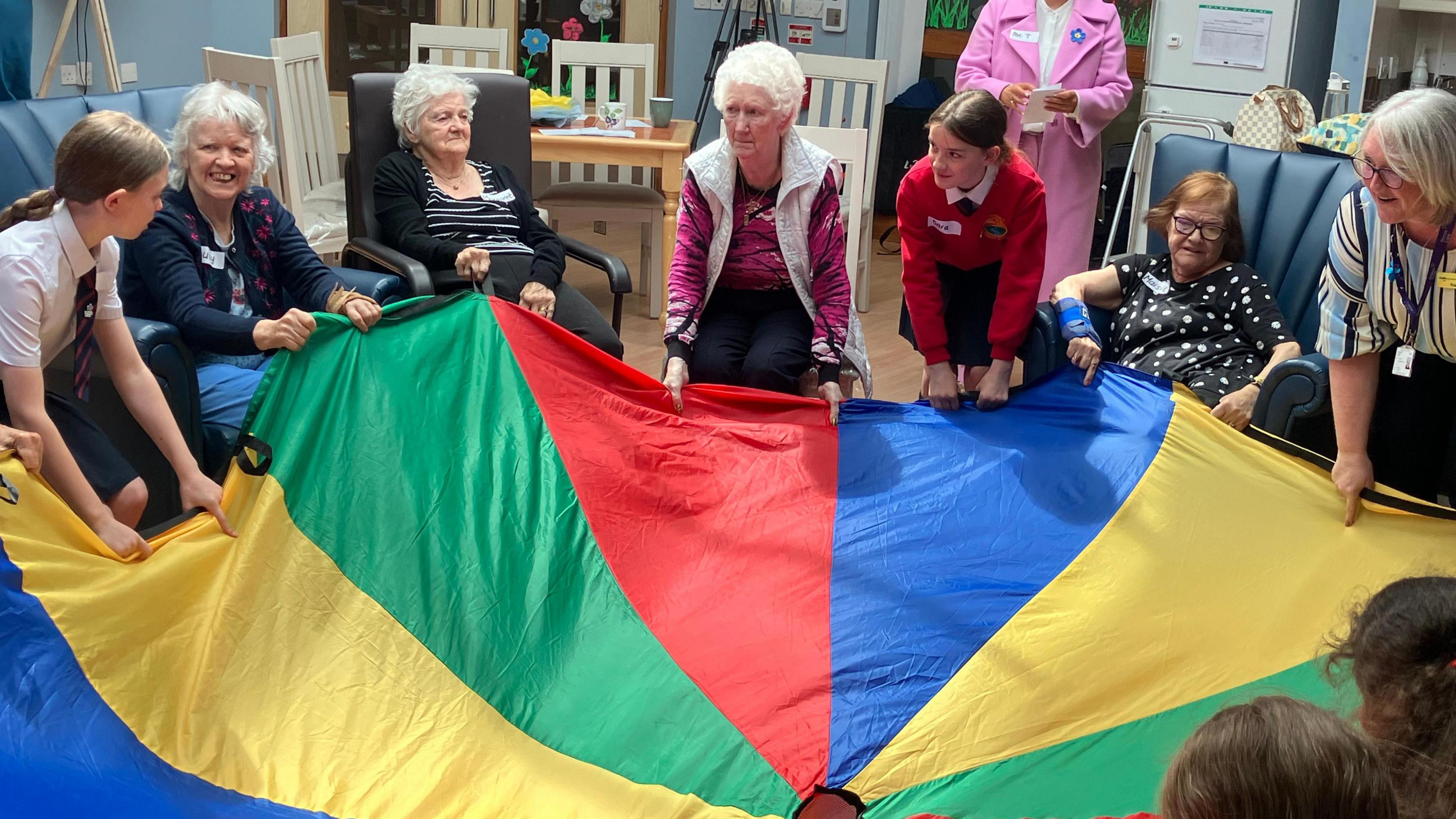
The pupils heard about street games like marbles and leap frog played by the older generation as children
The pensioners from the home have also visited the primary school.
BBC News NI went along when Katie and other Riverdale pupils made a return trip to St Paul's Court.
While there, the pupils heard about street games like marbles and leap frog played by the older generation as children.
They have also had lessons in what dementia is and what it is like to live with it.
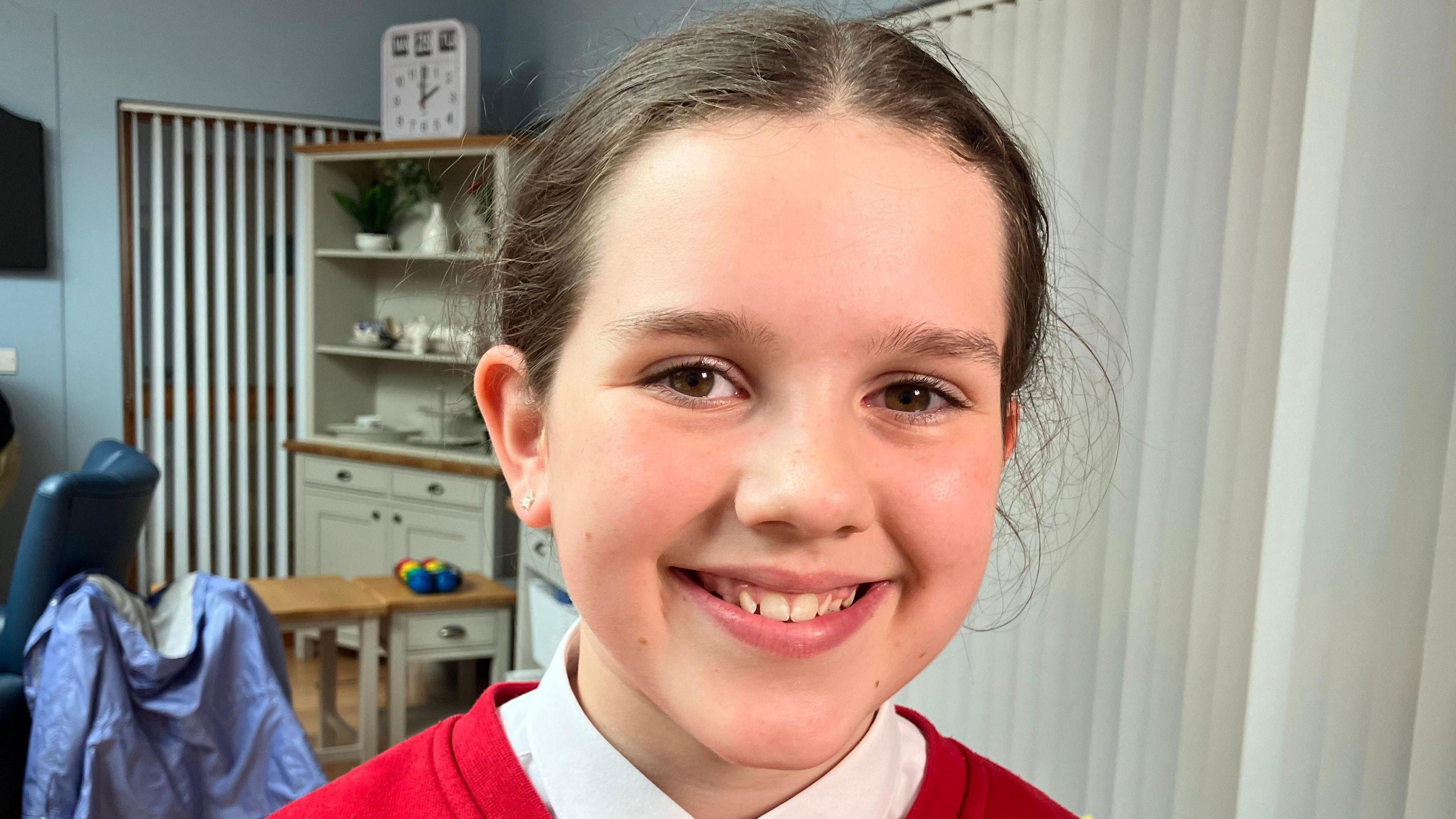
Katie and her classmates have been learning about dementia from older people living with the disease
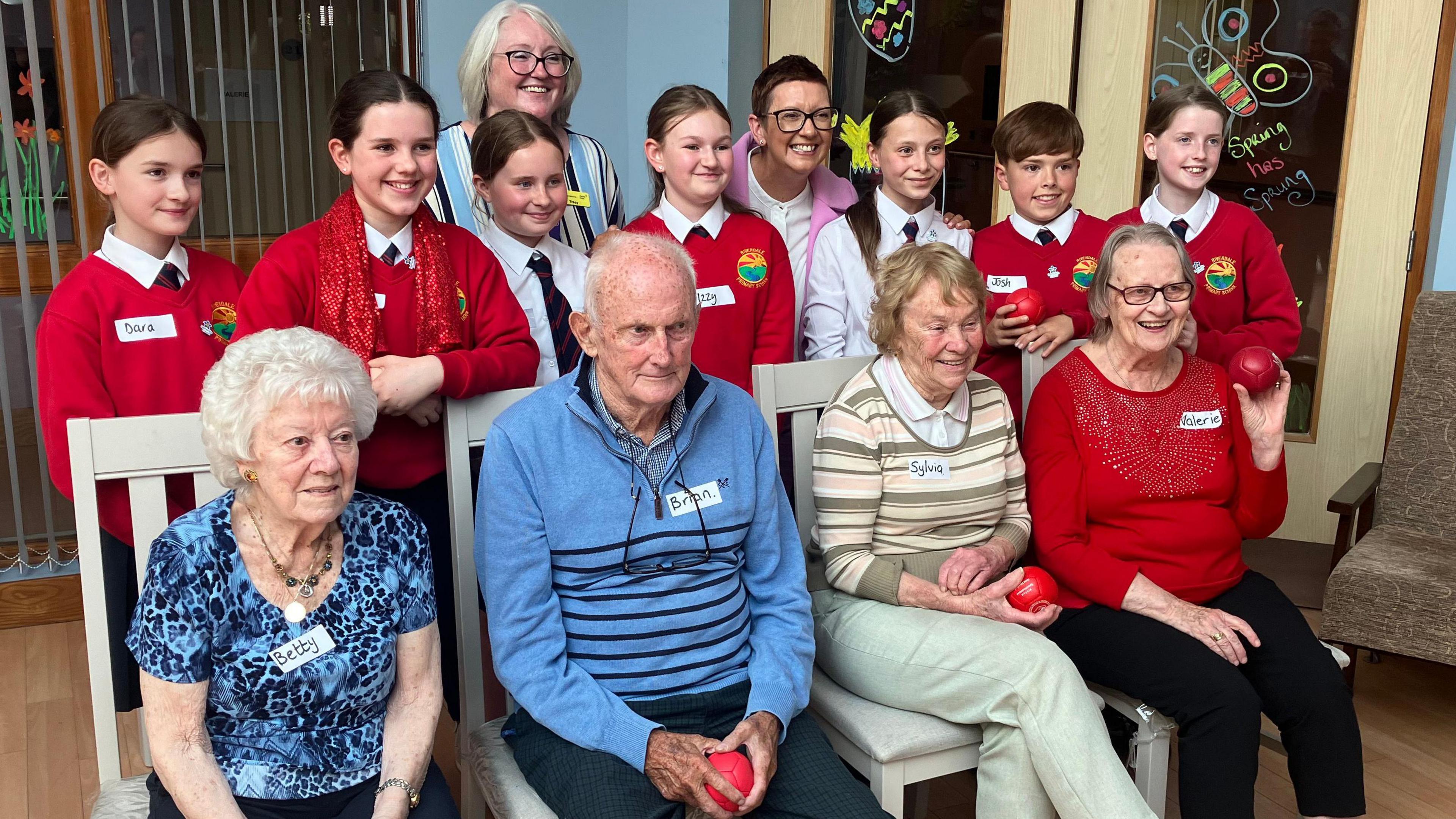
The pensioners from the home have also visited the primary school
Making friends with people with dementia
"It's more than a part of memory loss and a disease, it impacts daily life," Katie said.
"Dementia is like a bookcase - your newest memories would be on the top and then sometimes memories fall out."
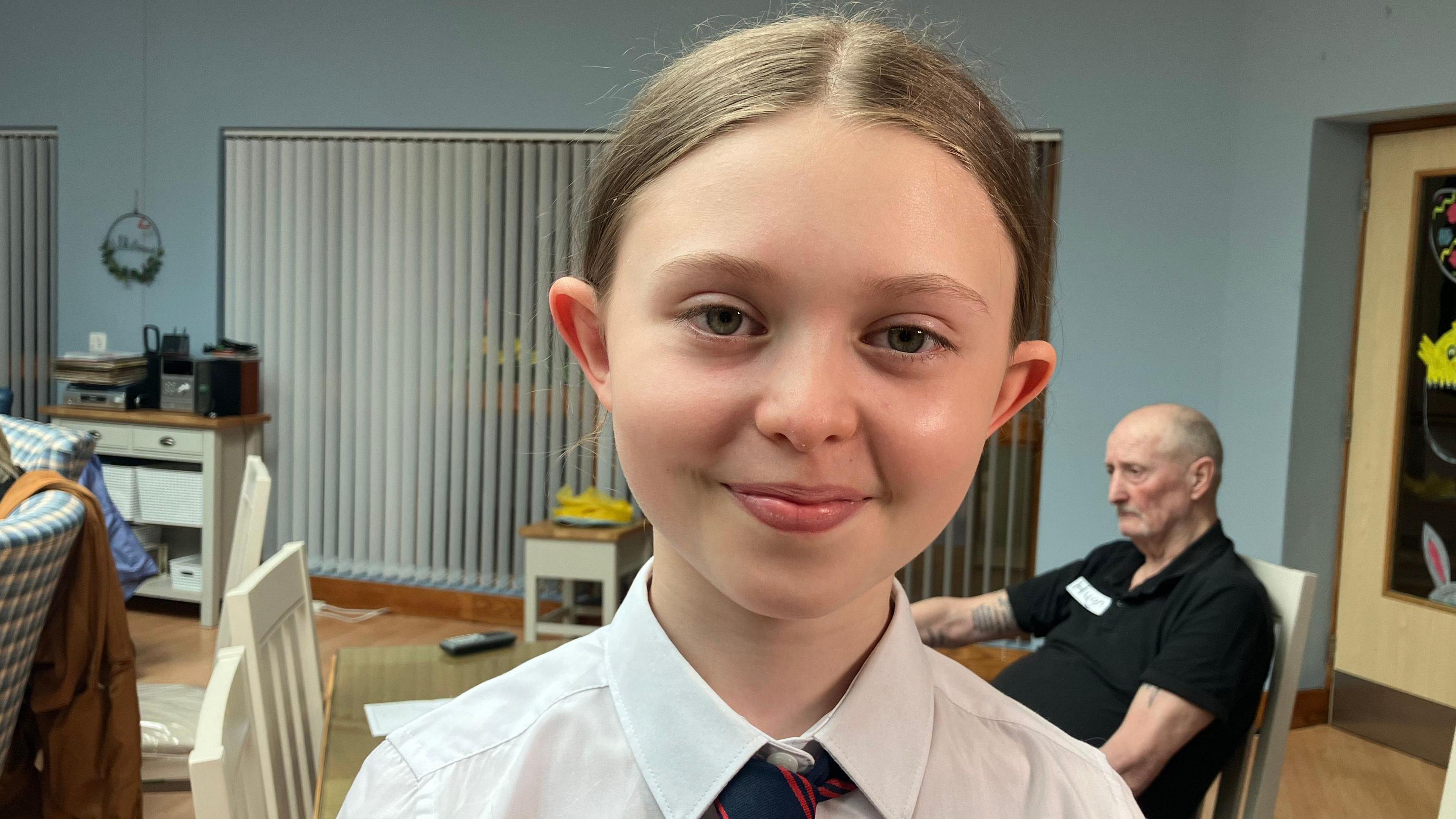
Grace said she had learnt how to help people with dementia "and be patient"
But pupils and residents have bonded over memories of childhood, even if their experiences can be very different.
"We have been discussing what their primary school was like and just getting to know them better - what their favourite foods are, what their favourite colours are," 10-year-old Grace said.
Friendships have taught the children about what it is like to live with dementia.
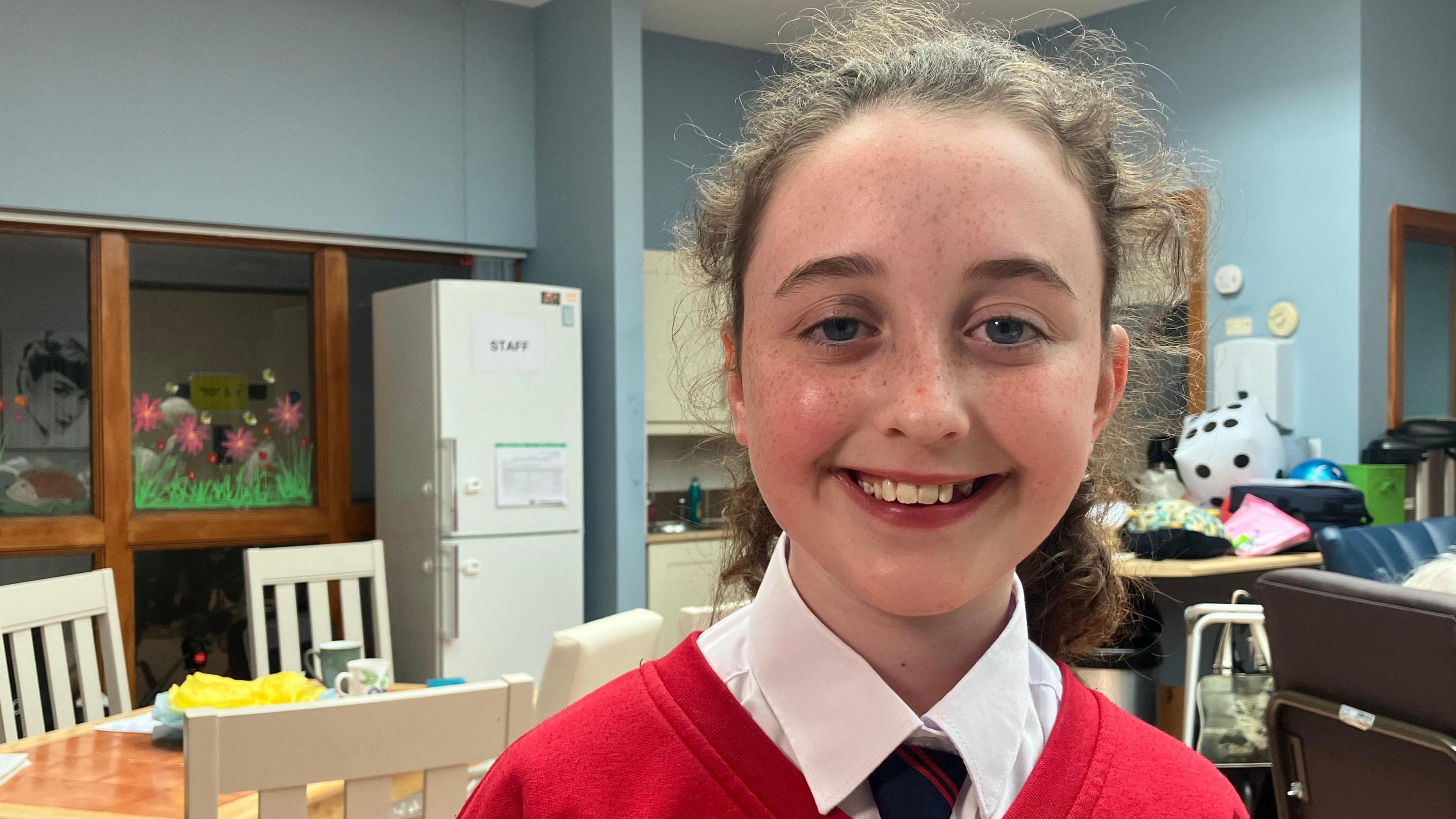
Kirsten says she's learnt that people with dementia "sometimes forget things" they have done recently
"When it does affect you, you normally don't forget things more about your childhood but you do sometimes forget things that you've recently done," said Kirsten, who is also 11.
Grace said that she had learnt how to help people with dementia, and to "be patient".
"They might just need a wee bit more time to remember stuff," she added.
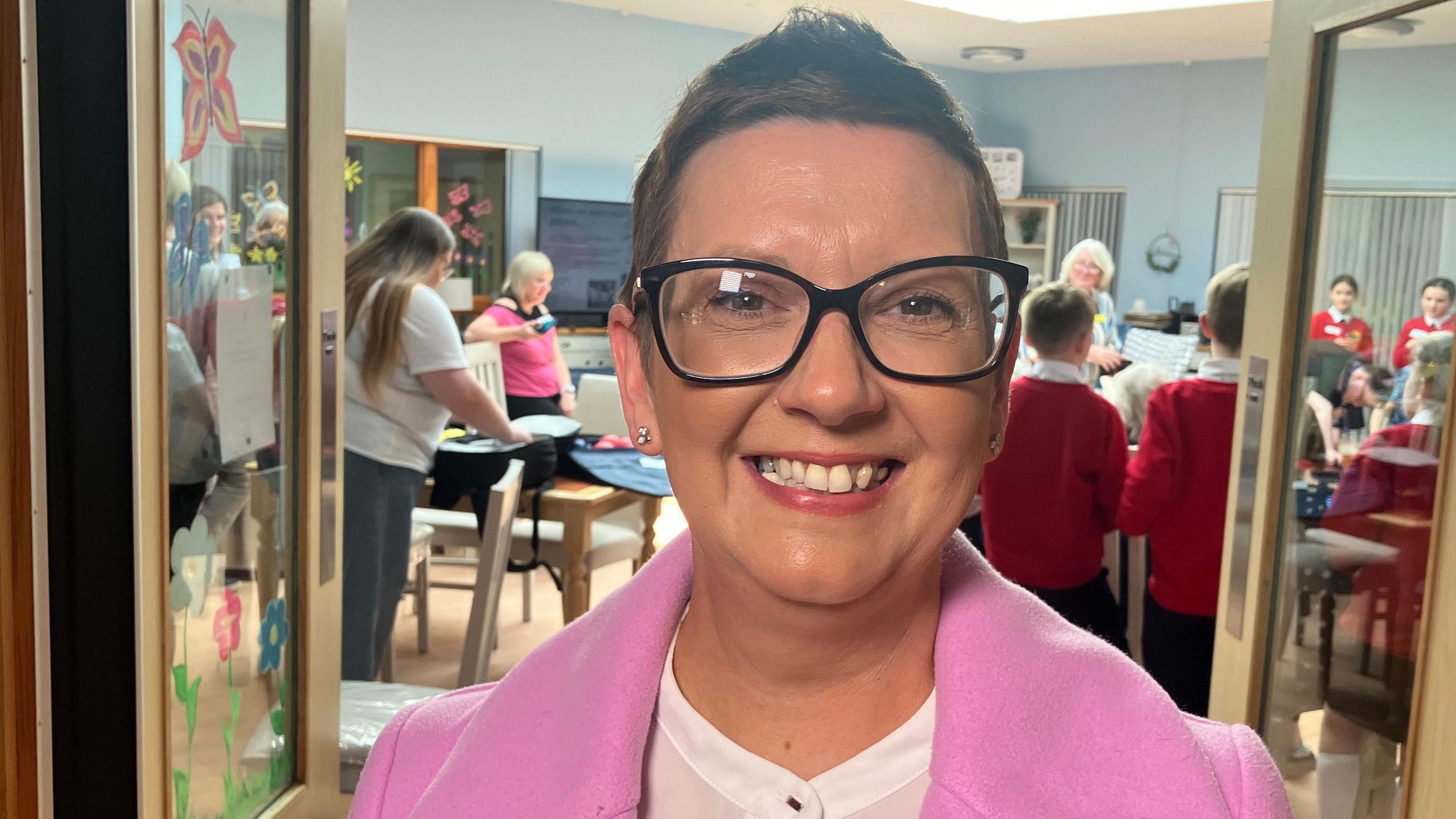
It's important to teach children about a disease some of their relatives might develop in the future, says the school's vice-principal
According to Riverdale's vice-principal Laura Totton, learning about dementia is learning about life and the local community.
"It is something that children will be impacted with, perhaps with their relatives in the future and it's important that we educate them and invite the community in to see what we do in school," she said.
"I think it's important so the children can understand these residents were once their age and they can relate to them as well."
How do the residents feel about the link with the primary school pupils?
Maisie and Sadie are both residents at St Paul's Court.
They have enjoyed meeting the children, and reminiscing about their own childhoods.
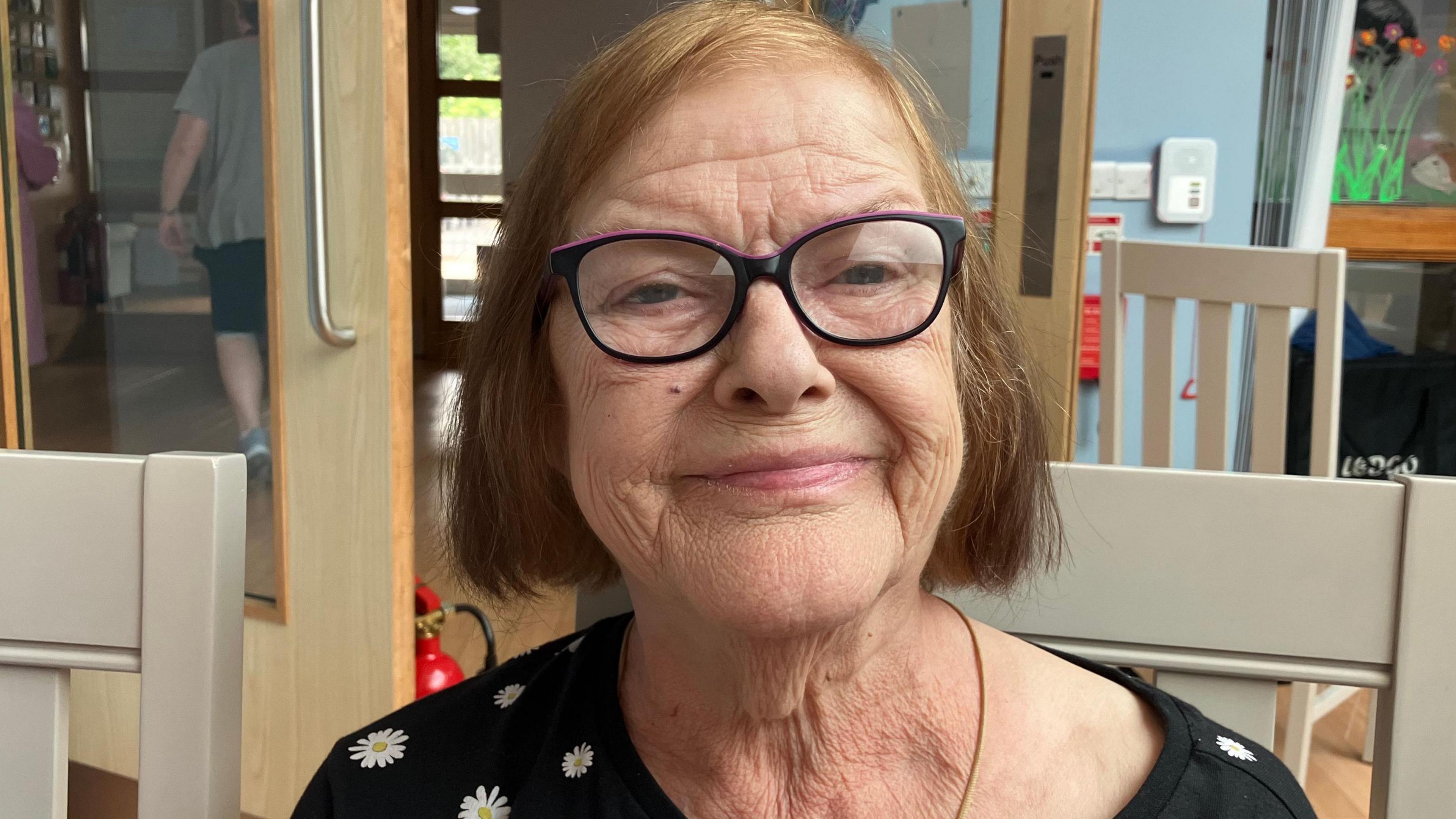
Maisie has made friends with some of the pupils
"I love music and I love singing and I joined in the two of them, but I also loved netball," Maisie said.
She has made friends with some of the pupils.
"I had three or four of them sitting on the chair beside me and it was lovely," she said.
"They're lovely people, they're lovely kids."
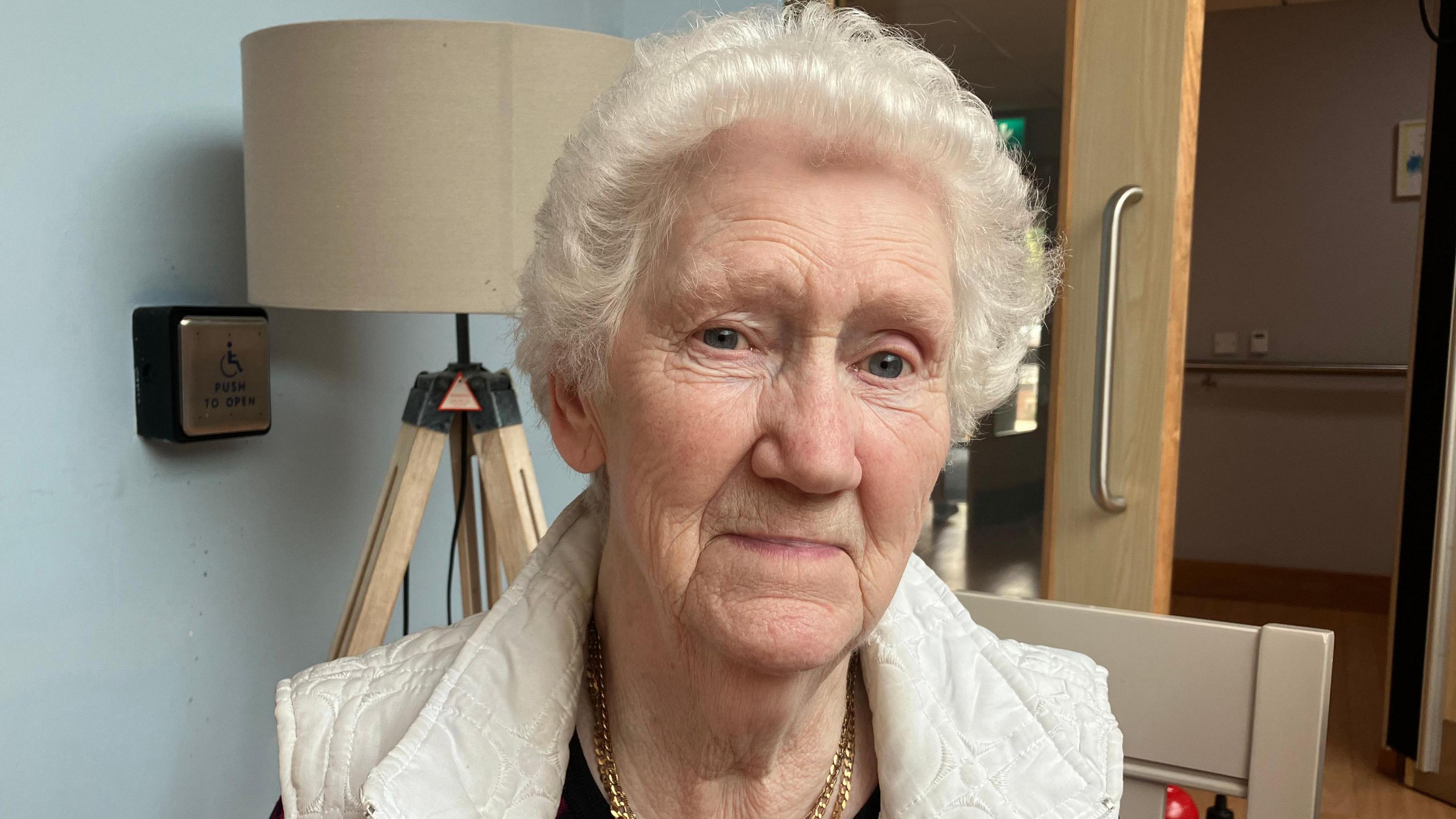
Sadie says being with the children makes residents think "about the way you used to be"
"It lifts you up," Sadie said.
"You're thinking about the way you used to be and all that.
"I look forward to them coming."
But Sadie admitted that playing boccia - which is a form of bowls - with the children had brought out her competitive side.
"I'm not too good at them but I'm getting a wee bit better," she laughed.
"Sometimes a swear word comes out!"
How do you teach younger children about dementia?
Riverdale Primary invited Tracy Smyth from Praxis Care into the school to teach pupils about dementia before the link-up with residents in St Paul's Court.
She said teaching the pupils involved a sensitive and age-appropriate approach.
Ms Smyth used an approach from the Alzheimer's Society which taught the children how to be "Dementia Friends."
"It is a disease of the brain like any other disease," she said.
"When it's broken down into those terms and how it affects somebody the children really took all the information on board."
"I believe it takes away that anxiety and almost fear some children might have - because we fear what we don't know."
And for her there is personal as well as professional motivation.
"My grandmother had dementia and as a younger child not understanding why I was seeing changes in my grandmother who I just loved," she said.
"The only conclusion I could come to as a child was that it was me, that I had done something wrong."
"And I vowed that no child should have that misconception or think that of their grandparents."
What are the signs of dementia?
The NHS describes dementia as a syndrome associated with an ongoing decline of brain functioning.
There are many different causes of dementia and many different types.
But some common symptoms can include memory loss, trouble speaking or difficulties doing daily activities.
As a result, people with dementia can find social situations difficult and may lose interest in socialising.
Symptoms can become worse over time.
The residents in St Paul's Court all have mild dementia or cognitive impairment.
Related topics
- Published3 June 2023
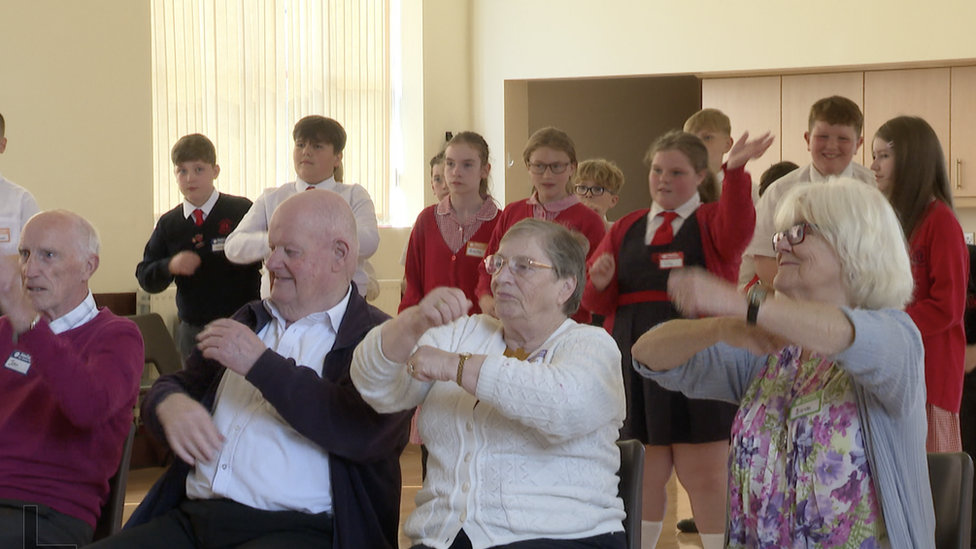
- Published2 April 2023
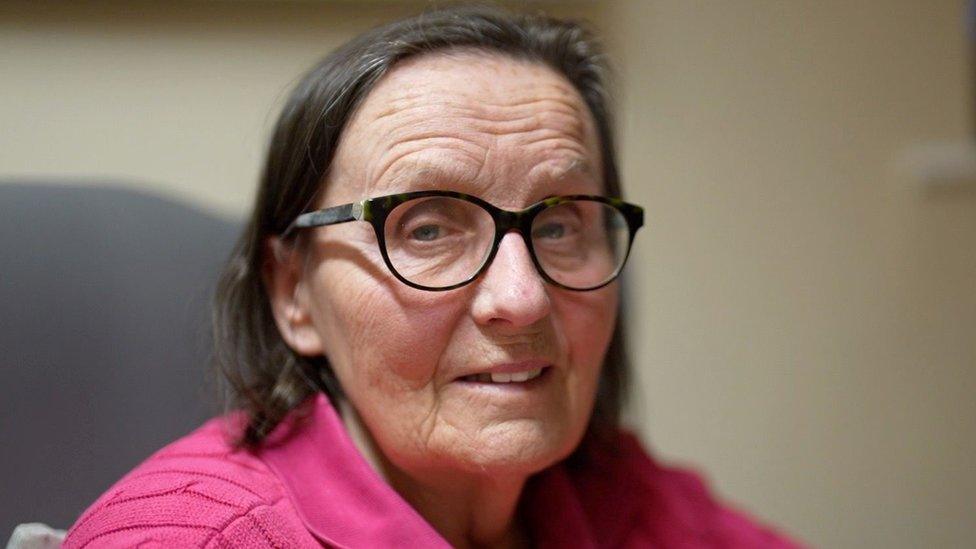
- Published4 April 2024
